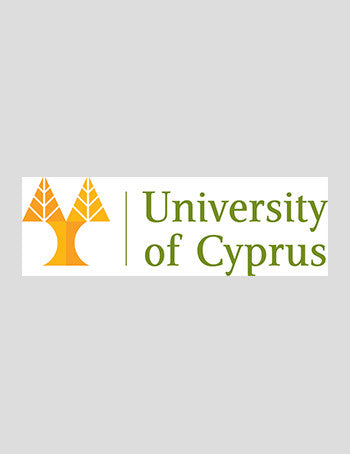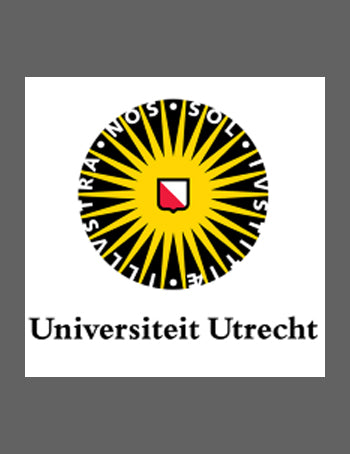
UNIVERSITY OF CYPRUS
The Path of a Country
Some books deal with theory or recount history but this book seems to be largely the transcript of a long conversation between Niyazi Kizilyürek and Glafkos Clerides. Because it is so simple, different, and unique, it is a tad difficult in some ways to criticise. It does not pretend to be a true scholarly work that investigates and analyses politics or history but is, for all intents and purposes, merely a conversation with one of the most important and influential people in the Republic of Cyprus. What it is, essentially, is an autobiography of Glafkos Clerides that was developed via interviews between the author and the former president between 2005 and 2006.
Yet, it is not just the transcripts of some interviews. There are some bonus materials such as a few key clippings from newspapers and a number of photographs of Glafkos Clerides. The prints are rather interesting in that they are not purely the formal shots that one usually sees from state events but they include a fascinating collection of pictures of him as a child as well as from various private events and moments in his life. I suspect that the pictures are private photographs from the archives of the former president, although I could not find a reference to the sources of the pictures.The book is divided into six parts that generally flow in a chronological manner, although the last section is mainly a discussion of the future of the Republic of Cyprus and the resolution of the Cyprus problem. Each segment begins with a short summary of the part; in addition to which the sub-divisions of each part to the book also have short summaries too. In Part I, there is a dialogue of the early life of Glafkos Clerides, dealing with his childhood, education, internment as a Prisoner of War, his marriage, and return to Cyprus. In Part II, there is a debate of the formation of the Republic of Cyprus and his involvement in the process and involvement with Archbishop Makarios. Part III explores the early days of the Republic from the early 60s to the mid-70s. Part IV concentrates on Glafkos Clerides' involvement with politics from the mid-70s until 1993. Part V is the former president's reflections on his activities during his presidency and his attempts to reconcile relationships with Turkish Cypriots. Part VI is a discussion of the Annan Plan together with musings upon future plans that might solve the Cyprus problem, with much debate on the
subject of federation, confederation, and the alternatives.
While the book is so different and while readers may sometimes be sceptical of some of the things that are reported by the former president, there are many details that are thought-provoking or shocking. For me, there is an engaging fact that I had neither heard of before nor imagined.
Glafkos Clerides reported that because his mother could not lactate properly, the parents had him suckle from a goat, rather than find a wet-nurse (p. 18). This information is the sort of snippet that can help a person revive a conversation at a cocktail party. Much of the information is not particularly abhorrent or interesting [for example that Dr Kutchuk was a heavy drinker (p. 123) or that Glafkos Clerides bought the tickets and brought Rauf Denktash's family to the airport to get them out of Cyprus in 1964 (pp. 118-119)]. But the recounting of the details and occurrences may assist many readers in acquiring a more colourful understanding of the political history of Cyprus.
But there are quite shocking moments and attitudes that are found in the book. For me, the most disturbing moment is the rather blasé way in which the author and Mr Clerides discuss the manner in which Tassos Papadopoulos was caught making preparations to kill Turkish Cypriots in the event of an invasion in 1964 (p. 107). To me, the intention of ethnic cleansing/genocide/mass killing is a horrific thing to skim over relatively quickly and treat in a fairly nonchalant way. Also discussed is the incident in which Rauf Denktash reported during his 1967 arrest that Tassos Papadopoulos and Spyros Kyprianou declared that they thought Rauf Denktash should be executed. Glafkos Clerides disputes that claim (p. 121), stating that no one spoke of execution but instead discussed where he should be detained.
There are many people who should benefit from reading the book. Although most academics and casual readers would not find the book particularly useful, someone with background knowledge of Cypriot history and politics should definitely find valuable information in the work.
If a person has knowledge of Cypriot politics and history, it probably would be a good book to look at, as it adds colour and details to what many people may already know. However, if a person is new to Cypriot politics and history, it might be a little hard to follow, although there are added features which make it more understandable to a newcomer to Cypriot politics and history.
Further, there are two other major features in the book that make the publication accessible for those people who are not very knowledgeable about Cypriot history or politics. One feature is a number of appendices that have been added which provide background information for those readers who would welcome the supportive facts. The appendices present biographies of major players in the politics of Cyprus during the period under discussion, background on political organisations (i.e. EOKA, DISY, DIKO and so on), and background on key proposals regarding the Cyprus problem (i.e. Akritas Plan and Annan Plan). The other helpful aid is the frequent use of footnotes to give brief definitions or add information regarding people or concepts that may not be familiar to a person who has not lived in Cyprus for a long time or lacks background knowledge of the Cyprus problem. An example of its usefulness is the footnote (p. 229) that informs the reader of what a Mukhtar is. Moreover, another footnote gives a short biography, informing the reader of who Henry Kissinger is (p. 151).
One major criticism of the book is that the interviews took place following the rejection of the Annan Plan in the Republic of Cyprus; so much of the debate is set at a timeframe following the defeat. The historical backdrop of the failure of the Annan Plan is one that serves as a setting for the book and plays a large role in the context of the conversations, which explains why Tassos Papadopoulos is referred to quite frequently. Another major criticism of the book is its format. As the transcripts of an interview, most readers will be unaccustomed to this sort of style of reading.
It does read rather like an exercise in eavesdropping (although the two men were fully aware, I presume, of the intention to use the material) and many may feel less comfortable with this style of reading as opposed to the more academic prose that many of us are used to. The advantage, though, is that there is probably less editing and the reader has fuller access to the words of the former president, taken directly (more or less) from his mouth.
All-in-all, this is a useful and interesting read. It contributes a great deal of insight into Glafkos Clerides and how he perceived the Cyprus problem and the likely solutions to the problem. Unfortunately, the section in which he mentions his detainment as a Prisoner of War, his escape, and eventual recapture are less detailed than I would have liked. I assume that many readers would have liked to know more about the escape and recapture, even if it has hardly anything to do with Cypriot political history. Even though the book is a little unorthodox in style, the attempt to make it accessible to those without a strong background in Cypriot political history is appreciated and largely successful. Despite the fact that Mr Clerides died in November 2013, a great deal has been written about him and will continue to inform researchers and historians for years to come. This
book is a useful addition to any library. It gives insight into how Mr Clerides perceived his role in the formation of the Republic of Cyprus and his attempts to solve the Cyprus problem.
Craig Webster
THE CYPRUS REVIEW
*source



